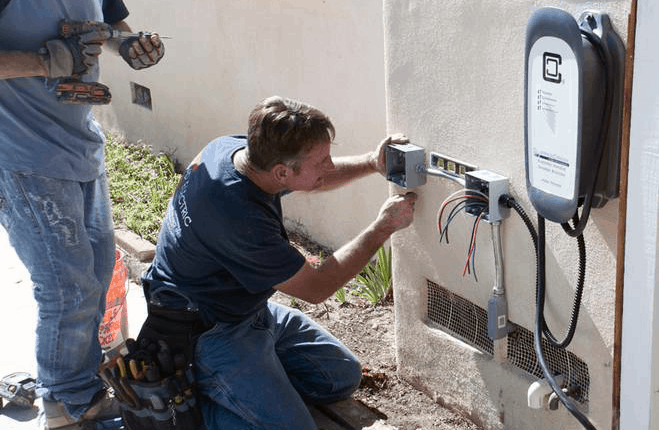
We are going to share what to avoid when installing your electric vehicle charger at home! Many EV owners know that it is more convenient to charge their vehicle at home overnight, as apposed to finding a charger that may not be so close to home.

What To Avoid When Installing An EV Charger At Home:

What To Avoid When Installing An EV Charger At Home:
- Some apartment complexes or condos will not allow you to install a charging station. If you do not live in a single family home, it is best to ask your landlord first if it is okay to install a charger before you purchase one. If they okay the charger being installed, make sure they also approve the location you want to install it a.
- You may need to hire an electrician. Many older homes cannot accomodate a level 2 charger due to how much power it needs. Some electrical panels may be too full, or might be wires the incorrect way from past owners which could cost alot to be fixed. It is best to get in touch with an electrician to figure out how much power you will need to suppor the charger you want to install
- Do no have someone who is uncertified to install your electric vehicle charger this can create a fire hazard. Avoid hiring a friend who says they know what they are doing. This again could lead to a house fire which wouldn't be covered by insurance, due to the person who installed the charging station was not a certified electrician and didn't file for a permit to perform the electrical work.
- Not getting a electrical permit. Adding a new electrical circuit requires an inspection from the town and a permit. The permit isn't expensive; the licensed electrician that is doing the work will have to supply that his business is insured which will protect you if anything were to happen, such as an electrical fire. When the time does come to sell your home, you can show the buyer proof that the work was done following code.
- Electric vehicle chargers have a built in GFCI protectors which keep people from being electrocuted when pluggin in their car, whether it is raining or if they are in standing water. The issue is that many outlets in homes have GFCI's already installed, what can happen is they can trip eachother and/or not work at all if the GFCI outlet wasn't installed correctly. The best way to avoid this issues is to get in touch with a electrician.